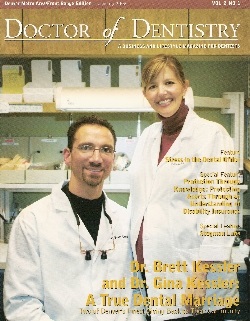Mark Hillman, Ph.D.
Executive Consultant
(This is an excerpt from an article called Stress in the Dental Office written by Liz Meszaros)
But why are dentists so prone to stress? According to Mark Hillman, Ph.D., the answer is multi-tiered. "One aspect is that [dentists] are trained as scientists, not business people, and the debt service they carry is sometimes overwhelming," he told Doctor of Dentistry. Indeed, studies have shown that the most dentist stress is related to practice management issues rather than clinical ones.
"Second, most dentists are male and concerned about production, production, production, and with that comes the problem of authentic communications with their office staff, which is mostly female," Dr. Hillman continued. "From my consultations within dental practices, most of the time the major concern is the lack of communication between dentist and staff. With female dentists, there is a tendency to get too 'close' to their staffs, and when there is a challenge, problems arise because of employee/friend conflict."
Indeed, Dr. Hillman believes that effective communications between dentists and their staff about expectations and specific problem-solving strategies is the No. 1 stressor of dentists.
"From what I have experienced, a few minutes that everyone get together in the morning before patients come in is not enough to facilitate [communication about] goals, expectations and needs," he said.
Strategies to help dentists deal with stress are numerous, continued Dr. Hillman, and include progressive relaxation, meditation, thought stopping and exercise.
"But what I have found is that unless there is a basic realignment of their individual belief systems, nothing is going to change. You don't have to yell or act out, as I have seen many dentists do to get people motivated. This is way beyond making money. This is all about values and beliefs," said Dr. Hillman.
His "take-home" message for dentists: "If it's not fatal, it's no big deal!"
He also adds that hiring a consultant to come in and revamp everything to make it right is not the best approach. "Stop hiring consultants to come to your office for a week and expect anything to change over a long time. There is a statistical behavioral measurement called regression toward your mean. If you decide to hire a consultant to work with you and your staff, break up the consultation fee and have the consultant come back every quarter. This based on sound psychological clinical theories of spaced repetition learning. The fact that the consultant comes back holds everyone accountable for the desired changes," he stressed.

Published in the January issue of Doctor of Dentistry
